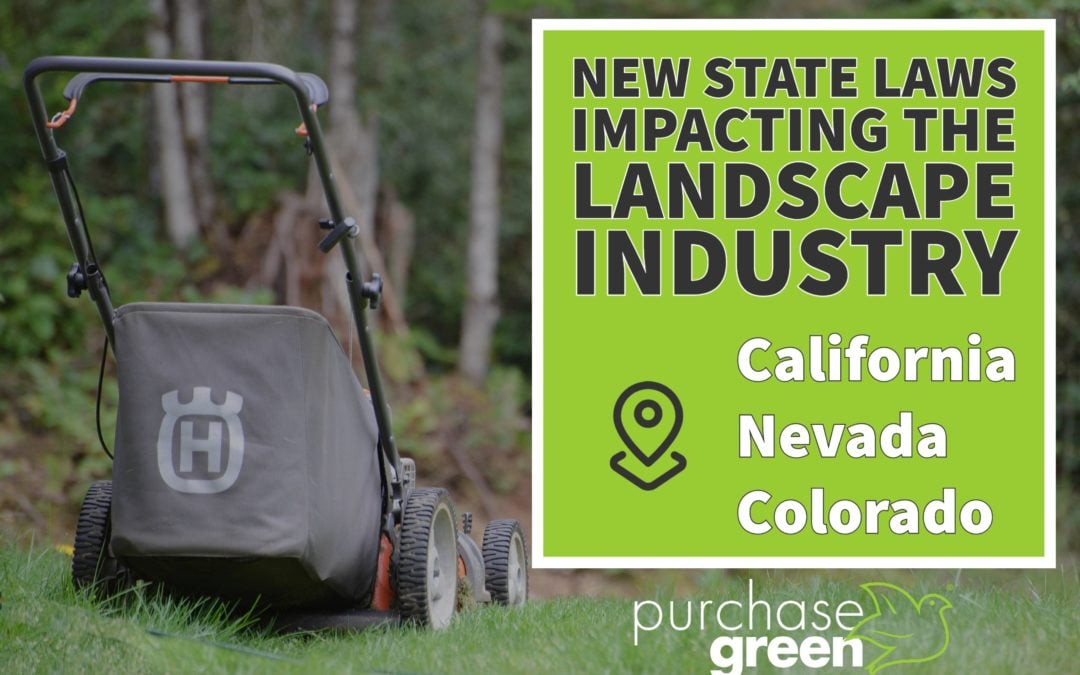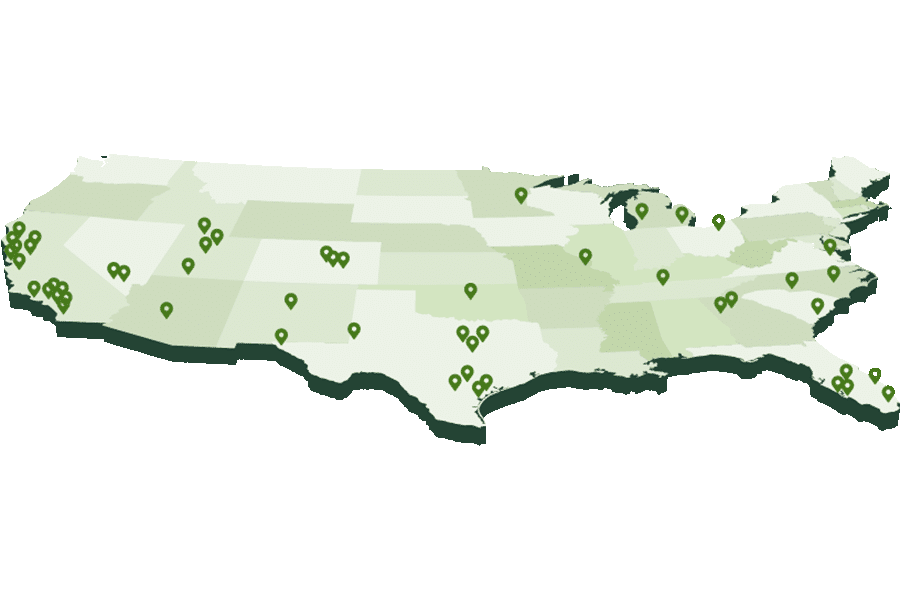The US landscaping industry is estimated to grow at a CAGR of 5.1% between 2022 and 2027. The rising demand for landscaping products and services can be attributed to millennial consumers’ increasing health consciousness, leading to the widespread adoption of self-sufficiency in food and vegetable gardening in their yards and compounds. Like any other industry in the USA, the landscaping industry is affected by a range of state and federal laws – most recently is the California gas-powered ban, which includes landscape equipment. This article provides a heads up on all the new laws impacting the landscape industry and its customers.
California: Ban on the Sale of New Gas-Powered Equipment
On October 9th, 2021, the governor accented to a new law prohibiting the sale of new gas-powered equipment using small off-road engines (SORE) in 2024. This includes all lawn and landscape equipment, generators, and pressure washers. This new legislation aligns with the state’s efforts to reduce its greenhouse gas emissions. The laws drafted by the California Air Resources Board require all newly sold SORE equipment used for landscaping to be zero-emission by the target dates. The assumption is that battery-powered equipment will become more widely available before the target date.
Are there any exemptions: The regulation doesn’t ban existing gas-powered equipment, which can still be used by the target dates.
Mode of implementation: There will be an annual review to determine whether the new regulations are on target. After each review, the state decides on whether the deadline needs to be altered or delayed.
Is there any financial aid provided?: The state has budgeted $30 million to help professional landscapers transition from gas-powered to zero-emission equipment. However, critics argue this amount is too little, and more money is needed to support small landscaping businesses making the transition.
The downside: The California gas-powered ban is likely to hit hard the landscapers recovering from the effects of COVID19. Typically, the cost of zero-emission, commercial-grade equipment is prohibitively high and less efficient than the traditional lawnmowers, leaf blowers, and other machinery widely used in the industry. Critics also argue battery-powered generators may not be adequate in areas where recharging facilities are nonexistent and places experiencing a sustained power outage. There is also a widespread concern that the ban will force Californians to buy their equipment from the neighboring states that still permit gas-powered equipment. This will not only lead to job losses but will also result in sustained air pollution.
Nevada: Ban on Non-Functional Grass
The Nevada state legislators passed laws to ban non-functional grass in the Las Vegas metro area in 2027. Non-functional grass generally refers to purely ornamental lawns commonly found in office parks, street medians, and housing developments. These also include grass planted between roads and sidewalks, on the medians and traffic circles, and any decorative plant located outside businesses, housing development, and other similar areas. Although the grass requires irrigation, they offer little in terms of recreational or environmental benefits. The Southern Nevada Water Authority (SNWA) argues the ban will help conserve Colorado River water. The law also ensures the Las Vegas Valley communities make more productive use of water in a region that experiences extended drought throughout the year.
Exemptions: lawns on single-family homes, parks, and golf courses are exempt. However, to be exempted, the properties should be subject to other water conservation-minded regulations.
Benefits: the SNWA reveals 2000 hectares of their service area is covered by non-functional grass consuming 10 % of water allocation from the Colorado River each year. The new legislation aims at ensuring 75 % of the non-functional grass is removed to save water. Currently, water levels in Lake Mead, which is Nevada’s primary storage site for water allocations from the Colorado River, have reached historic lows. Experts reveal the water levels will remain low or worsen at least until the end of 2022.
Downside: The ban on non-functional grass will likely reduce demand for lawn equipment and lawn care services. This will likely trigger massive job losses in the state’s landscaping industry. This revelation forced the state to declare the Colorado River water shortage declaration in august.
Alternatives: As an alternative, the agency urges residents to plant drought-resistant plants like cacti, canopy trees, and flowering bushes. Such plants will help conserve water and mitigate the urban heat-island effects while enhancing groundwater recharge.
Colorado: Colorado Common Interest Ownership Act
In 2021, Colorado enacted the Colorado Common Interest Ownership Act. The act increases the disclosure and transparency requirements in the operations of unit owners’ associations (HOAs).
What are Colorado Common Interest Ownership Act requirements?
The act mandates an HOA to maintain and make accessible to unit owners the following official records:
A list of HOAs current fees charged when a member sells a home in the community
Functional information is disclosed annually, including meeting minutes, insurance policies, reserve fund balances, and financial statements.
Section 1 includes the inclusion of nonvegetative turf grass among the types of drought-resistant landscaping materials that HOA can regulate but not prohibit in backyard areas.
Section 2 of the act also requires specificity to the requirements that allow HOAs to install renewable energy devices such as solar panels.
If the HOA doesn’t avail the association records within 30 calendar days after a member makes a request, the association is liable for a penalty of $50 per day.
Are there any exemptions?: The act does not apply to HOAs that include time-share units.
Aurora, Colorado: Grass Ban
Aurora’s mayor has proposed massive changes that could alter the city’s look in the future. The proposal, which aims to ban non-functional turf on new development and redevelopment projects after January 2023, applies to residential and commercial properties in the city. Turf means any cool-season species, variety, or blend, including Kentucky bluegrass and fescue. The Aurora Water Agency reveals millions of gallons of water are used each day to irrigate non-functional turf vegetation during summer in areas such as golf courses. The main goal of the regulation is to help conserve water in a city that averages only 15 inches of precipitation annually. Traditional turf grasses such as the Kentucky bluegrasses require up to 28 inches of moisture each year. Generally, the proposal affects plants that require more than 9.3 gallons of water per square foot. The proposal also prohibits the installation of ornamental water features like ponds and fountains in public and private outdoor areas. Additionally, if the proposal comes into effect, it will be illegal to remove water-wise landscaping to replace it with turf.
Exemptions: The proposed ordinance doesn’t affect current homeowners or their landscape. The city reveals there are plans to offer incentives to such homeowners to encourage them to replace their lawns with drought-resistant landscaping options.
Implementation: The proposal allows for grass installation in designated recreation and activity areas located in commercial properties, schools, parks, and family developments. The ordinance is expected to be discussed as part of the city council study session on April 18th, 2022. If passed, the regulation comes into force on January 1st, 2-23.
Is there any financial assistance?: If you live in Aurora and are considering getting rid of your grass lawn, the city offers a rebate program that pays up to $3000 in materials. The city also provides free access to design professionals to help you design your lawn.
Benefits: Aurora city water typically travels over 150 miles to get to the city from three different river basins via myriads of tunnels and pipes. Putting the valuable commodity on a lawn doesn’t make sustainable sense in the long run. Experts also reveal local landscapers will have a greater opportunity for business if xeriscaping becomes a mandate.
Drawbacks: Landscaping businesses that specialize in turf will likely see a challenge with the new proposals. Landscaping companies in Aurora need to rethink their business models and specialties to adapt to the changes and remain profitable.
Landscaping Industry: FAQs
Which State Is Best to Start a Landscaping Business in the USA?
California is currently the best state to start a landscaping business. California Landscape Contractors Association (CLCA) reveals the green industry in the state contributes 0.83% of the state’s gross domestic product (GDP). The industry boasts annual sales of $25 billion and nearly 260 000 jobs. Other top states include Florida, Texas, Michigan, and Colorado.
Which State Pays Landscaping Professionals the Most?
The states and districts that pay landscapers and groundskeepers the highest mean salary include:
- District of Columbia ($41,990)
- Massachusetts ($41,820)
- Washington ($39,910)
- Hawaii ($39,250)
- Connecticut ($38,930).
Final Thoughts
Undoubtedly, the landscaping industry is going through significant expansion driven by rising demand from younger households. The Bureau of Labour Statistics reveals that the average spending per household on lawn care and gardening activities rose considerably from $ 141.04 in 2016 to $ 170.77 in 2020 in the United States.
As mentioned earlier, several state laws impact the landscaping industry. These laws differ from state to state, and it is vital that you understand the ins and outs of the regulations if your business provides lawn care services or if you are a homeowner thinking of practicing landscaping on your lawns. If you have further questions, contact Purchase Green today. Purchase Green is the largest distributor of artificial grass in the nation, offering the best products at the best prices. Contact us today to learn more.





